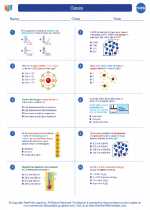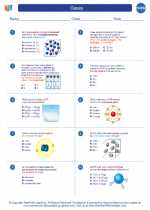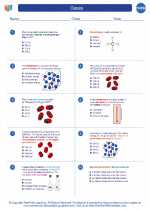Disease
Disease is a condition that impairs the normal functioning of an organism. It can be caused by various factors such as pathogens (e.g. bacteria, viruses), genetic mutations, environmental factors, or lifestyle choices.
Types of Diseases
Diseases can be classified into several categories:
- Infectious Diseases: These are caused by pathogens such as bacteria, viruses, fungi, and parasites.
- Non-communicable Diseases: These are typically chronic conditions that are not caused by infectious agents and include diseases such as diabetes, heart disease, and cancer.
- Genetic Diseases: These are caused by abnormalities in an individual's genetic material and can be inherited or arise spontaneously.
- Environmental Diseases: These are caused by exposure to environmental factors such as pollution, radiation, and toxins.
Causes of Diseases
The causes of diseases can be broadly categorized as follows:
- Pathogens: Microorganisms such as bacteria, viruses, and fungi can cause infectious diseases.
- Genetic Factors: Mutations or abnormalities in an individual's genetic material can lead to genetic diseases.
- Environmental Factors: Exposure to pollutants, toxins, radiation, and other environmental factors can contribute to the development of certain diseases.
- Lifestyle Choices: Poor diet, lack of exercise, smoking, and excessive alcohol consumption can increase the risk of developing various diseases.
Prevention and Treatment
Preventing and treating diseases often involves a combination of strategies including:
- Vaccination: Immunization can prevent many infectious diseases.
- Healthy Lifestyle: Eating a balanced diet, regular exercise, and avoiding harmful habits can reduce the risk of many diseases.
- Medication: Pharmaceutical drugs are used to treat a wide range of diseases, from infections to chronic conditions.
- Surgery: Surgical interventions may be necessary to treat certain diseases, such as cancer or cardiovascular conditions.
Impact of Diseases
Diseases can have a significant impact on individuals, communities, and societies as a whole. They can lead to decreased quality of life, increased healthcare costs, and can even cause widespread epidemics or pandemics.
Study Guide
When studying the topic of diseases, consider the following key points:
- Understand the different types of diseases and their characteristics.
- Learn about the causes of diseases, including pathogens, genetic factors, environmental factors, and lifestyle choices.
- Explore methods of disease prevention and treatment, such as vaccination, healthy lifestyle choices, medication, and surgery.
- Consider the impact of diseases on individuals and society.
By mastering these concepts, you will be well-equipped to understand and address the complexities of diseases and their effects.
.


